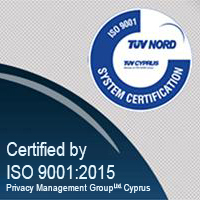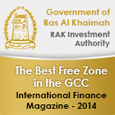What is an Offshore Company?

An offshore company, also referred to as a “non-resident company”, is one of the most popular types of company formation worldwide. The motivations for forming an offshore company are varied: securing existing assets, optimising the company’s situation with regard to taxes and duties, a stronger limitation of liability or the reduction of bureaucratic regulations – these and other reasons can make offshore company formation attractive to prospective founders.
But what are the reasons not to choose an offshore firm? Are offshore firms really illegal, as some media outlets portray them? And what should you be aware of if you want to found and use an offshore company legally and worry-free?
These questions and more will be answered on this page. If you still have questions, our English-speaking team of experts (find them under “Contact”) will be happy to speak with you and provide answers. This page provides information on the following areas:
Ownership and Control of an Offshore Company
Why do people choose to found offshore companies?
There are two main reasons to opt for offshore company formation. The first is the opportunity to carry out risk-free, ongoing tax optimisation. The second relates to the desire for adequate anonymity and is frequently linked with the protection of one’s own assets. These two reasons should be considered independently of one another.
For the purposes of example: some offshore companies are not established to minimise tax burden and public dues, but rather to serve solely as a “protective shell” for assets belonging to the company owner that have already been earned and taxed. In most cases, however, the motivations for founding overlap and fit together.
Other reasons to opt for offshore company formation could be:
- the broader limitation of liability;
- the use of an offshore firm as a “partner” abroad;
- the earning of capital to safeguard one’s retirement or for times of crisis;
- for the independent outsourcing of a company’s internal tasks;
- as an "account and asset holder”;
- for reasons of prestige (e.g. the “reputation” of a certain location);
- for simplified handling of business transactions, such as with Asia or the UAE;
- the relatively low formation costs and subsequent expenses.
Is it illegal to own an offshore firm?
No. In principal, the ownership of shares in an offshore company – whether directly or indirectly – is the same as owning shares in a company in your country of residence. However, many countries with a high tax burden have enacted legislation to counteract the transferral of business to well-known offshore finance centres. A few of these high-tax jurisdictions have “devised” discriminatory withholding tax rates and other instruments aimed at individual offshore jurisdictions.
While these diverse measures generally do not prohibit the formation of companies abroad, you, as the founder of the company, should always consult a tax advisor or lawyer in your tax domicile before taking action. Do not shy away from the financial and time costs of seeking good-quality, comprehensive advice prior to formation.
Is the offshore company subject to accounting obligations?
As a general rule, the offshore company is not obligated to keep accounts or produce balance sheets. However, the jurisdictions of the Seychelles, St. Vincent and Belize merit separate attention, because a simplified record retention obligation applies here. Our experts will be happy to advise you. Please see our contact form contact form for more details on how to get in touch with a specialist.
Formation and Structure of an Offshore Company
Is there a minimum capital requirement for offshore companies?
No. As a rule, there is no minimum capital requirement for an offshore company. The owner of the company is free to decide on the amount of authorised capital. Our specialists will be happy to advise you on exceptions to this rule. Please feel free to contact them by phone or email!
For the most part, the law does not place any restrictions on when the authorised capital must be paid in. Often, it is the shareholders alone who make this decision. With a few exceptions, the offshore company's shares can be issued in any currency.
Does an offshore company require office premises in its place of domicile?
No. As has already been described in the “General Information”, an offshore company is classified as a “non-resident company”.
However, a minimal local presence is required by law. This means that the company is required to establish a registered office and a registered agent to act on its behalf in the country of incorporation. Registered offices and agents are arranged by us as part of our fixed package of services. The registered agent’s role will be carried out by a licensed registered agent on location.
What does “general power of attorney” mean in the context of an offshore company?
The general power of attorney can relate either to the entire spectrum of representative powers (general power of attorney) or to a few specific rights and responsibilities (“special” or “limited” attorney). Even if you choose to use a nominee, you will generally receive an unlimited and irrevocable power of attorney that cannot be revoked by the nominee. More information on this subject can be found under Nominees and Nomineeship.
What is a "Certificate of Good Standing"?
A Certificate of Good Standing (CGS) is an official document issued by the Register of Companies. A CGS confirms that a particular company legally exists, that all administrative requirements for its registration have been met, that all state tax charges have been paid and that - from the perspective of the Register of Companies - the company has been in “good standing” from the date of issue of the certificate onwards.
The Certificate of Good Standing is similar in form and content to the Certificate of Incorporation that is issued at the time of the company’s formation (inclusive in our services).
In particular, a Certificate of Good Standing is required to formally verify the ongoing legal existence of the company. It is usually achieved a certain amount of time after the company is incorporated.
Essentially, the Certificate of Good Standing confirms that the status of a legal person – in this case, the offshore company – has not been abolished or rendered invalid. In addition, it provides information about whether the offshore company has been merged with another company, applied for liquidation or been struck from the Register of Companies. We will send you your Certificate of Incorporation free of charge. The procurement of this documentation is also a part of our fixed comprehensive package of services.
Ownership and Control of an Offshore Company
What is the difference between a shareholder and a beneficial owner?
A shareholder is a private or legal person who is a formal owner of shares for a particular offshore company. They do exactly as their name implies – that is, they hold the shares. When we talk about offshore companies, however, we must make a distinction between the “holding” of shares and the actual ownership of the company.
Such shareholders are known as nominee shareholders or nominal stockholders (so-called “nominee shareholders”). In this case, the person who is the actual owner of the shares is known as the Beneficial Owner.
Essentially, the nominee shareholder acts as a “shield” to “obscure” the identity of the financial owner. A nominee thus prevents unauthorised third parties from being able to determine the actual owner of the company.
Within the nominee shareholder / beneficial owner arrangement, the beneficial owner retains de-facto ownership of the shares and is the one who is entitled to profits, dividends and payments.
The financial owner also retains the right to decide on the eventual sale or transfer of shares. Not all beneficial owners are shareholders and not all shareholders are beneficial owners; however, it is entirely possible for both roles to be held by the same person, in the event that no nominee shareholder has been appointed.
If you choose to make use of the nominee service offered by Privacy Management Group, you will not only remain the sole decision maker, but also retain sole control over the company, its assets and bank accounts. Further information on this topic can be found under “A Nominee’s Responsibilities”.
Does a beneficial owner always retain the right the act on behalf of the company?
The beneficial owners will always retain sole control of the company without restrictions.
Whether beneficial owners may also serve as authorised signatories is dependent upon the internal structure of the company. Company owners can act as authorised signatories in the following cases:
(a) If they have been appointed as directors;
(b) If a general power of attorney or a special resolution encompassing this right has been issued by the offshore company.
In cases where point (b) applies, beneficial owners may claim this right if so desired.
What are the disadvantages of an offshore company in comparison with a free zone company?
An offshore company offers enormous advantages from a tax perspective as well as in terms of its discretion and administrative workload.
Offshore companies – sometimes referred to online as “offshore tax traps” – have typically proven disadvantageous only in cases where they have sought to carry out legal transactions with European companies.
Privacy Management Group offers its clients a number exclusive services designed to counteract this disadvantage, including a so-called global agent service. Alternatively, prospective company owners may choose to form a free zone company, which is internationally recognised and can therefore operate worldwide without limitations. In terms of tax exemptions, it offers similar advantages to an offshore company, but without the offshore label.
Further information on the formation of free zone companies can be found on this page. We would be very happy to answer your further questions on this subject (Contact).







